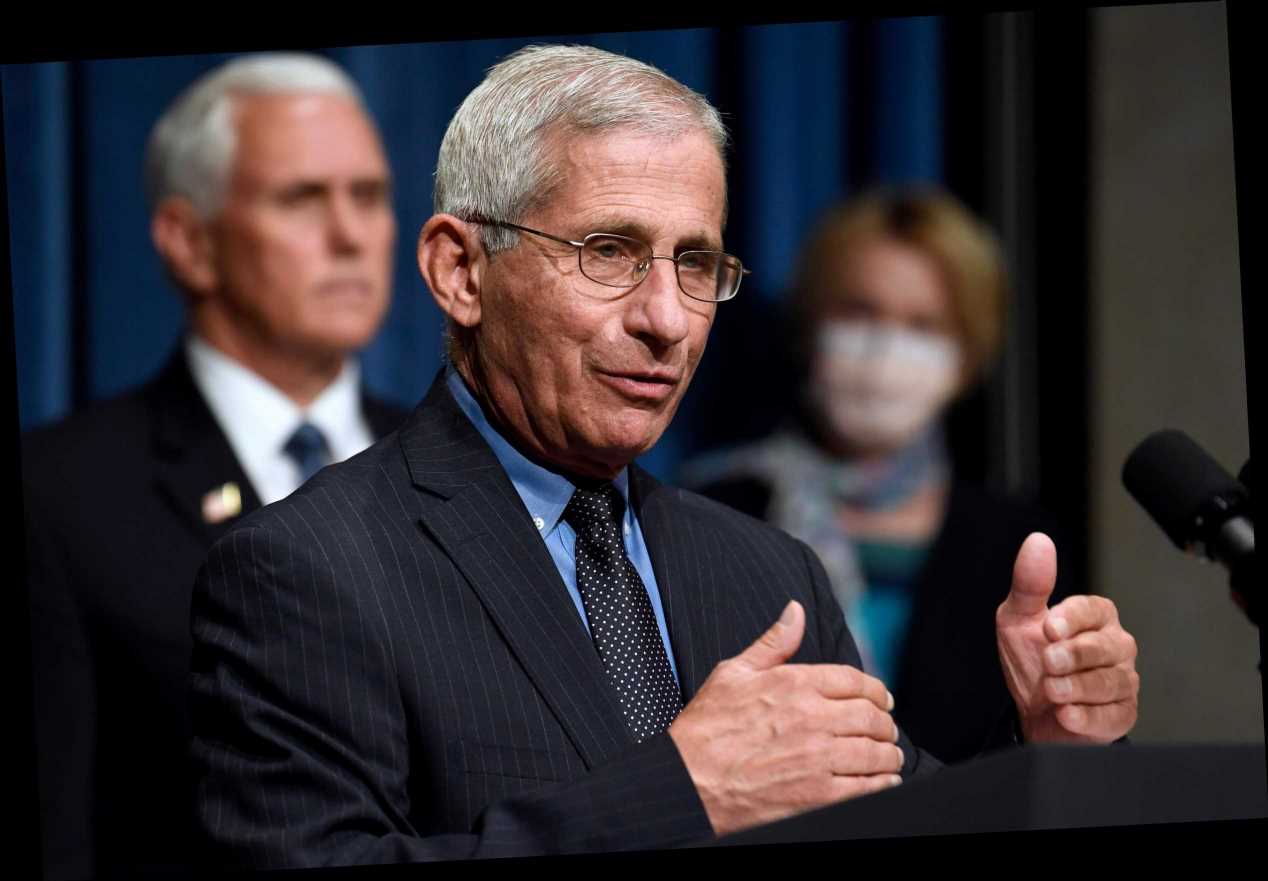DR Anthony Fauci said he won't be at President Donald Trump's coronavirus briefing on Tuesday — and said he considers himself a "realist," rather than an "alarmist."
Fauci said during an appearance on CNN that White House didn't invite him to Trump's task force briefing, the first since April, so he doesn't expect to be in attendance.
The director of the National Institute of Allergy and Infectious Diseases discussed several topics during his interview with Jake Tapper, including the need for better COVID testing in the US.
Tapper noted that health experts have said that in order for the US to isolate the virus, it would require aggressive testing with quick results that would help contact tracing.
Fauci said there are "certainly attempts to do that," but the officials "need to make it better."
Some coronavirus tests are returned to Americans in a short period of time, but some results can take over 10 days to return to the test-taker — who may or may not be infected with the virus.
Fauci acknowledged that receiving test results within 24 to 48 hours of being tested is "reasonable," and said that if you get results six to seven days later, it "mitigates against good tracing and good isolation."
He said the US has "gotta do better on that."
Fauci said that in different areas of the US, like in Florida or Louisiana, test results often take a different amount of time to be returned.
He said the "common denominator" among delays in "when you get surges, it overwhelms the system a bit."
"Even places that are getting tests in an expedited manner are not having trouble," Fauci said, adding that the US needs to make a "smooth transition from a certain level of testing to ratcheting it up."
He said there is a "need to do better with surges in southern states."
Tapper noted to Fauci that Trump called him an "alarmist" in relation to coronavirus — with which Fauci disagreed.
He said he considered himself "more of a realist than alarmist … when it comes to this."
Touching on the topic of vaccines, Fauci said that when the Food and Drug Administration (FDA) approves one for Americans to use, he encourages them to get the vaccine.
He said the FDA wouldn't approve a vaccine — of which there are currently four that "have shown promise" — unless "it's good enough to protect you."
Fauci said, in response to the idea that people should wait "to get a better vaccine later on" after the first one comes out, that Americans should feel confident getting the first vaccine.
"A vaccine will not be approved by he FDA unless it clearly shows it's safe and effective," he said, noting that there are multiple vaccine candidates.
He said if the first vaccine candidate reaches the "finish line," "it's not the only candidate."
"You might get a vaccine that's better than the other, but some protection by vaccine is certainly better than no protection," Fauci said. "I like the idea that there are multiple vaccine candidates – I hope we get approval for more than one."
On the topic of children, educators, and school employees returning to school in the fall, Fauci said it's an "important problem," but he said he hasn't spoken to Trump or Education Secretary Betsy DeVos about it.
Trump and DeVos have pushed to kids to return to school, despite the pandemic.
Fauci said: "We should try as best as we can to get kids back to school."
He said that the negative effects of parents and kids staying at home are "well-documented," but said that in order to get people back, the US needs to "make sure you do whatever you can to safeguard the safety and health of the kids, as well as the teachers."
"That should guide your policy," Fauci said.
He said that colleges and universities in the US have been discussing "intermittent surveillance testing" for coronavirus that would allow students to be frequently tested in order to receive their education.
Fauci said he's not sure if that type of testing is being discussed for primary education like elementary schools.
He acknowledged that while many kids get sick and handle it well, some children are hit strongly by the virus and can pass that on to adults.
Source: Read Full Article



